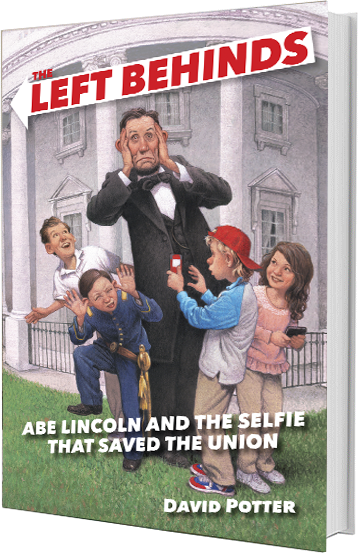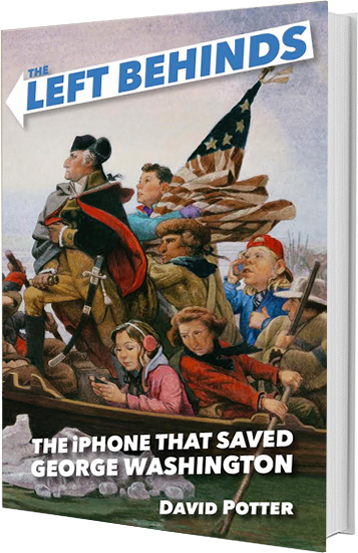If Fox News had been around during the debate on the Constitution – the original debate, that is, in the late 1780’s – whose side would they be on?
This is a legit question, not a cheap shot at Fox News. Because today’s anti-Big Government voices sound very much like yesterday’s anti-Federalists.
Not Federalists.
Anti-Federalists.
Anti-Federalists were opposed to the new constitution, and made their views known loudly and clearly. The media of the time were broadsheets, and the method of choice was adapting the name of a well-know republican.
That would be a republican from Rome. Cato was one such nom de guerre. Brutus was another.
I suppose that The Federalist Papers are better known, but they were written primarily by Alexander Hamilton and James Madison, two arch-proponents of the new constitution. To greatly summarize their views in favor: 1) The current system, the Articles of Confederation, was not working, 2) this new constitution maybe wasn’t perfect but it was the best they could come up with, given all the competing interests and agendas between Northern colonies and Southern colonies, big colonies and small colonies, slave-dependent colonies and non-slave dependent colonies, and 3) they weren’t 100% sure, but they hoped it would work.
For a thorough understanding of both sides of the debate, I suggest you leaf through Volumes One And Two of The Library of America’s Debate On The Constitution. You will come away impressed by the erudition of the writers and the cogency of their arguments.
Particularly with the logic of the anti-Federalists. A few things stand out. First, hadn’t these thirteen colonies just a few years before thrown off the shackles of a large central power – namely, the British Crown? And hadn’t the hated British Crown manifested its authority and dominance through the vile practice of standing armies? And third, didn’t the British Crown finance its power through the collection of a variety of taxes, imposts,and duties that imposed hardships on the People while concentrating power and money into the hands of the Few?
And what now were Washington, Hamilton, Madison and their cohorts proposing? A strong central power, standing armies, and tax-collecting authority!
Meet the new boss. Same as the old boss.
“A most daring attempt to establish a despotic aristocracy,” said “Centinel.” A former officer of the late army published a letter in the Philadelphia Gazetteer complaining that “the new government will be EXPENSIVE beyond what we have ever experienced” and “a government partaking of MONARCHY and aristocracy will be fully and firmly established, and liberty will be but a name to adorn the short historic page of the halcyon days of America.” Said “Brutus”: “If you adopt it… posterity will execrate your memory.” Elbridge Gerry of Massachusetts, who signed the Declaration of Independence (and from whom the term “gerrymandering”derives) attended the Convention but refused to put his name to it. Said he: “Should the citizens of America adopt the plan as it now stands, their liberties may be lost.”
Keep in mind that no one was threatening anybody’s rights or liberties at this particular time. There was no British Crown to deal with, remember? Just thirteen independent colonies. And when the Constitution was first unveiled, it did not include the Bill of Rights or any amendments.
No wonder folks went ballistic. It seemed to many they were gaining a strong central power, but losing their own individual rights.
And another thing: what was with all the secrecy? With all the maneuvering behind the scenes, the special deals, the compromises?
The fix, if you will, was in from the get-go. We call in The Constitutional Convention today, but then? It was merely a meeting, in Philadelphia, to discuss as gentlemen an issue or two with the Articles of Confederation.
Tariffs. Water rights. That sort of thing. The stated intention was to report back to Congress their findings and recommendations.
Who said anything about junking the Articles of Confederation and inserting in its a place something wholly new?
Like a brand new nation?
That would be the Supreme Law of the Land?
If Bill O’Reilly had been around, he would have gone apoplectic. But then so would Rachel Maddow, The NY Times, The Wall Street Journal, and everyone else. Because there were elements in this new constitution that offended every constituency.
Today’s Occupy Wall Street and Inequality voices would notice how so very deeply yesterday’s financial titans (derisively called “speculators” and “stock jobbers” by none other than Thomas Jefferson, who was in Paris throughout the debate) – favored the new constitution. Its strongest and fiercest advocate, Alexander Hamilton, was also heavily connected to the New York and Philadelphia financial system of merchants and bankers, and would become our first Secretary of the Treasury. Financials interests – Big Money – had every reason to support the new constitution because the thirteen colonies were not a nation per se. Credit was non-existent due to debts and defaults incurred during the Revolution. Big Money interests -then and now – prefer stability, order, predictability, and consolidation, all of which were promised by the adoption of the new constitution.
And then there is the question of slavery – a word which never appears in the new constitution, but whose impact is felt throughout. Indeed, Article I, Section 2, contains the cryptic “three fifths of other Persons” phrase, which means in plain English that for purposes of census-tallying the more slaves a state had the more votes in the House of Representatives it would be given, creating disproportionate influence by slave-dependent states. To drive home the point, take a look at Article 1, Section 9, which prohibits the new government from making laws impacting “the Migration or Importation of Such Persons as any of the States now existing shall think proper to admit” until 1808.
Our anti-Federalist friend “Brutus” did not fail to notice, of course. Said “Brutus:” “Why is the number of members in the assembly, to be encreased on their (slaves) account? Is it because in some of the states, a considerable part of the property of the inhabitants, consists in a number of their fellow men, who are held in bondage, in defiance of every idea of benevolence, justice, and religion, and contrary to all principles of liberty, which had been publickly avowed, in the late glorious revolution?”
One can only imagine how the debate would have fared today, with 24/7 cable news, talk radio, the internet, Snapchat and Instagram, etc. But we’re still at it, aren’t we? We’re still arguing over pretty much everything they argued over, plus plenty more, which to my mind proves a point: We Americans are a Contentious People. To argue and debate is in our DNA, and it is generally a very good thing, considering the alternative (see War, Civil). And the reason we debate so often over so much is really pretty simple: we’re competing against each other for something all of us want.
Power.
We have no king, no permanent and inherited aristocracy that could at any time squelch debate and impose its will. It’s just plain old us. And no, we can’t just all agree – that’s decidedly not how we roll. Nothing happens here – not a constitution, not a farm bill, not a school budget – until it’s debated, and debated, and debated some more. At some points the votes may be counted, but that by no means stops the debate. The debate goes on. And on. And on…
Next topic – the A Team of the Founding Fathers.


